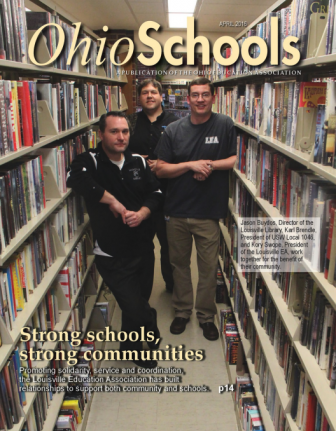Ohio Schools Magazine

April 2016 Ohio Schools
Strong Schools, Strong Communities – Promoting solidarity, service and coordination, the Lousiville Education Association has built relationships to support both community and schools

Strong Schools, Strong Communities – Promoting solidarity, service and coordination, the Lousiville Education Association has built relationships to support both community and schools
